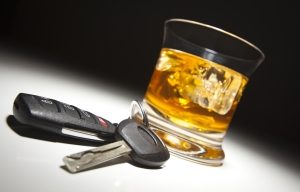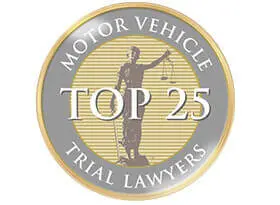Is driving at night really unsafe? Night driving is more than just paranoia; statistically speaking driving at night is more dangerous. According to NSC.org, 50% of traffic deaths from an auto accident happen at night. In fact, being familiar with the road or not, driving at night is just more dangerous. The reason for this, to not much surprise, is because we all can’t see as well in the dark. Also, reaction times tend to be slower at night than during daylight. How can we change this statistic? We’re going to give you 8 safe driving tips to help you reduce the risk of an accident at night.
1. be Defensive
When driving at night you face a few types of drivers you may not come into contact with during the day. According to the NHTSA, coming across someone who is drinking and driving poses a much larger risk at night. So it’s a good idea to put your defensive driving instincts on higher alert.
2. Fight Fatigue
Drowsy driving causes almost as many accidents as driving under the influence. According to NSC.org, an estimated 328,000 drowsy driving crashes occur annually. Feeling tired? Combat fatigue by getting some caffeine, listening to music, rolling down a window, or pull over and get some rest.
3. Slow Down
According to the NHTSA, 37 percent of nighttime driving fatalities were a result of speeding. Be mindful of how quickly you’re driving. Remember, your reaction time will be slower due to lower visibility and shorter times to react. Adjust your speed to take all of these conditions into account.
4. Use High Beams When Appropriate
Most roads and highways will be relatively well-lit as long as they are not in rural areas. If you’re driving down small roads or unfamiliar places, make sure you use your high beams to help expand your range of vision. Be aware of cars around you when using high beams so that you don’t accidentally cause an auto accident. Most new cars have an adaptive setting for your lighting systems that automatically adjust your high beams depending on the presence of other cars – a pretty great feature!
5. Change Accent Lighting
Most cars come with accent lighting in the dashboard and other places around the interior. If your vehicle’s dashboard lights or interior accent lighting are too bright, it can be disorienting glancing down at the dashboard and then at the road ahead. Many new cars have sensors that will automatically dim, but if your car doesn’t automatically you will find a place to manually change the brightness.
6. Watch For Wildlife
Driving at night can mean an increase in animal activity. Wildlife can be dangerous for every type of vehicle from motorcycles, cars to even large trucks. The most common time for collisions with deer is October through January anywhere from dusk or at night. When you see them, make sure you slow down and stop, try not to swerve so you can avoid any other risk of a car accident.
7. Know Your Lights
Make sure you are comfortable and have the best visibility with the illumination of your headlights. If the beams tilt down too much or are too high they can cause more problems not being able to see properly. Make sure you regularly test all of your lights, including high beams, turn signals, and brake lights. This will ensure that they are working properly and comfortably when they are needed.
8. Have Proper Eye Wear
Make sure you are frequently getting vision checks. The frequency of this will be determined by your optometrist. Glares can become more problematic and obstruct your vision as you age. Your doctor may also give you another prescription for you to use at night.
Using These Eight Tips You Are Able To Stay Better Informed And Careful When Driving At Night.
Have You Or A Loved One Been Injured In An Auto Accident, Trucking Accident Or Motorcycle Accident Ater Dark? After You’ve Alerted The Authorities And Received Medical Treatment, Call Jones & Swanson At (770) 427-5498 for Help With Next Steps. You Can Also contact Us Online to Request More Information And Schedule A Free Case Evaluation Today.










